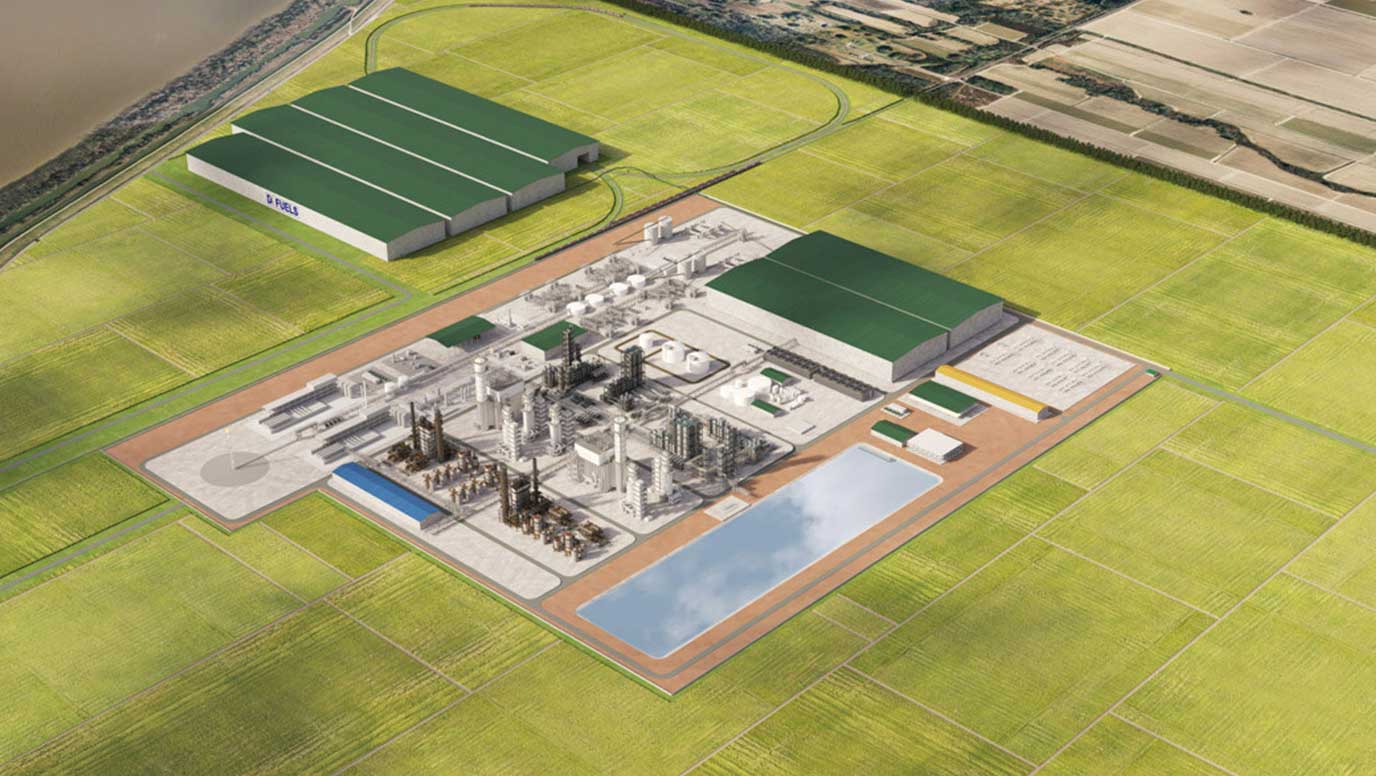Johnson Matthey chosen for aviation fuel project in Louisiana

Washington headquartered DG Fuels has hand picked JM along with bp’s co-developed Fischer Tropsch (FT) CANS™ technology for its first sustainable aviation fuel (SAF) plant.
Located in Louisiana, it would boast a planned capacity of 13,000 barrels per day – capable, after blending to 50 per cent, of producing enough SAF for more than 30,000 transatlantic flights annually. The plant would be seven times larger than any previously announced project using this technology.
DG Fuels has already secured offtake agreements with Delta Air Lines and Air France-KLM and has a strategic partnership with Airbus to scale up the use of SAF globally.
DG Fuels is an emerging leader in renewable hydrogen and biogenic based, synthetic SAF and diesel fuel. The proposed $4bn plant is planned to produce 600,000 metric tons (MT) of SAF per year when fully operational and would be the largest announced SAF production plant using a non-HEFA route.
DG Fuels is planning 10 more SAF production plants across the United States. These would be modelled on the Louisiana facility with JM and bp as the partners of choice for them.
The fuel at the Louisiana plant is expected to be produced from waste biomass. DG Fuels is projected to buy around $120 million of sugar cane waste annually, a third of which is planned to be purchased from St. James Parish farmers on the plant’s home turf.
JM and bp’s FT CANS technology converts the synthesis gas derived from this biomass to synthetic crude which is then further processed to produce the synthetic kerosene that is then blended with conventional jet fuel to produce SAF.
Current international certification for this SAF requires a blend of up to 50 per cent with fossil kerosene to create ‘drop-in SAF’. Based on a typical widebody aircraft fuel consumption rate travelling from London to New York, the plant's planned SAF production capacity, after blending, is equivalent to the fuel required for over 30,000 transatlantic flights annually – more than three per cent of annual traffic currently flying on that route. The plant is expected to start production by 2028.
Maurits van Tol, Chief Executive for Catalyst Technologies at Johnson Matthey, said: “The size of this project is truly exciting and would help take the industry closer to wide-scale use of SAF.
“DG Fuels has ambitious plans and the fact it has secured agreements with major airlines demonstrates there is appetite in the market. Our FT CANS technology enables cost-effective deployment across a wide range of project sizes. We look forward to working with DG Fuels as a long-term partner for SAF production.”
Noemie Turner, VP Technology Development & Commercialisation at bp, added: “The aviation industry is looking to greatly increase its use of SAF, and we’re proud that DG Fuels has selected our technology to be at the heart of their ambitious plans for large scale SAF production.
“Our FT CANS technology solution brings together decades of science and engineering expertise from bp and JM, and this project shows its competitiveness across the range of production scales and feedstock sources the industry needs.”


